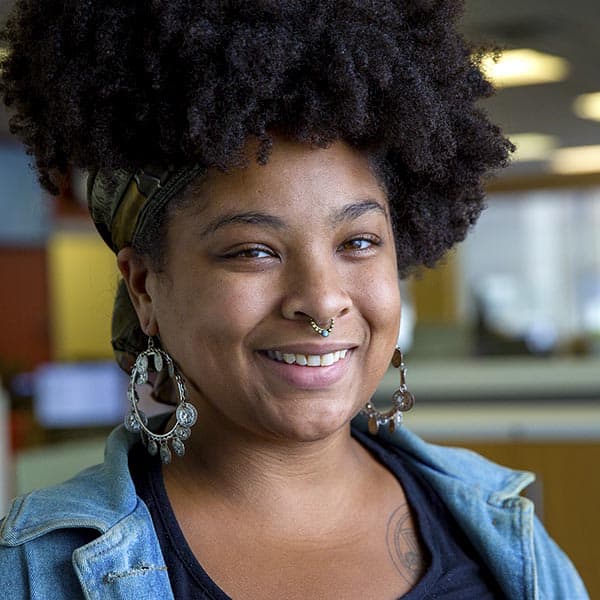Advertisement
Book clubs across Mass. read Mel King’s 'Chain of Change'

Legendary local activist, educator and community leader Mel King wrote his book “Chain of Change” in 1981. It’s both autobiographical and an analysis of the impacts of racist power structures on Black neighborhoods in Boston. King outlines the many local efforts to create pertinent, needed change in the city’s underserved communities.
“Black power is being forged, as we link together our struggles, as we break the chains of dependence on the white power structure,” King wrote in the preface for the first edition of the book.
Shirronda Almeida, director of the Mel King Institute, first read “Chain of Change” in the 1990s. “ I inherited my mom’s copy of the book,” she says. “I grew up in Boston and the book just helped lay out the history of organizing in the city.” She took a class with King at the Massachusetts Institute of Technology later in the decade. “He would just challenge us to think about how we were engaging with other people in the world.”
Almeida and others at the institute felt that the current cultural climate was the right environment to resurface the lessons of "Chain of Change." The institute launched a readathon in October and has been working with 30 different book clubs across Greater Boston and Massachusetts.
King's book is dense. He intersperses with lots of theory and community research. Kavi Neva, the program and communications director at the Mel King Institute, created a discussion guide for book clubs to utilize. They estimate around 300 people have participated in the “Chain of Change” readathon and book clubs so far.

“We’re taking it chapter by chapter and moving through the book slowly,” Neva says. “When I originally read ‘Chain of Change’ I was highlighting every other line. There’s so much to learn and we want the reading groups to take the space to really absorb what King was writing about.”
In the book, King addresses a number of initiatives that had lasting impacts on the city’s Black communities, including bussing, urban renewal (or “urban removal” as he calls it in the book’s chronology) and inequities in housing. “The programs and political boundaries established by those in power… have consistently been constructed to make it virtually impossible for community residents to take responsibility for the operation of their own neighborhoods,” King writes.
Karilyn Crockett, assistant professor of urban planning, history and public policy at the Massachusetts Institute of Technology, regularly includes “Chain of Change” on the syllabus for different courses she teaches. “The beauty of the book is that King offers this very spare and elegant prose but it packs a punch. You really want students to be able to grapple with these big ideas.”
Advertisement
Crockett wrote the forward for the book's 2016 reprinting. She was also part of the Mel King Institute’s readathon advisory board. “ I had a chance to stop by a couple local bookstores and the report is that ‘Chain of Change’ is selling, people are coming in and they're talking about the book clubs and readathon,” Crockett says.
Like Almeida, Crockett met King in the '90s. They talked over coffee and from there, King became a “comrade and friend. He would always say that we look at the dirt on the floor but the broom is in our hand,” Crockett recalls. “It was this really beautiful encapsulation of this idea that we are the ones we've been waiting for.”
This is a major theme in “Chain of Change.” While King spends time examining some of the systemic reasons for the inequities in Boston’s Black communities and ensuing community-led efforts, he consistently emphasizes the importance of interpersonal relationships. Caring for one another is sometimes the most radical act a community can take.
“ Love is the question and the answer,” says Almeida. “We're doing this work, not just to do it but because we have love for our fellow neighbors, for our communities, for ourselves.”
Throughout the readathon, the Mel King Institute has increased the number of copies of “Chain of Change” in circulation. The institute distributed more than 70 copies to community members and was able to secure more copies of the 2016 reprinting for Boston Public Libraries to keep in stock.
The book clubs and readathon are wrapping up this month but the hope is that people continue to engage with “Chain of Change” in meaningful ways. The Mel King Institute is launching a virtual book club in May that will help those who are interested learn more about King’s seminal work.
“Everyone can become a link in the chain,” Almeida points out. “This book is part of the answer. This is part of our inspiration. This is part of our history. This is a playbook that provides a real pathway to change.”
